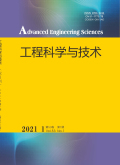工程科学与技术2024,Vol.56Issue(1):99-109,11.DOI:10.15961/j.jsuese.202201108
无人机任务卸载与充电协同优化
Joint Optimization of UAV Task Offloading and Charging
摘要
Abstract
In applications of harsh outdoor environments,unmanned aerial vehicles(UAVs),known for their flexibility and convenience,were utilized to assist in carrying user tasks to edge servers through wireless data transmission.However,it was found that UAV flight platforms struggled to provide long-duration task offloading services,significantly limiting their application prospects.This study investigated how to ef-fectively integrate UAV task offloading and charging scheduling in a mobile edge computing environment.Firstly,a new application model was constructed,which cohesively managed UAV task offloading scheduling and its own charging needs,incorporating several wireless charging plat-forms into the UAV-assisted task offloading application scenario.These platforms enabled UAVs to autonomously recharge during task execu-tion,providing automated charging services without the need for human intervention.UAVs independently decided whether to proceed to the nearest charging node for power replenishment based on their current power level and upcoming task offloading plans.However,opting to re-charge at a charging station not only incurred additional time and energy consumption from cruising altitude to the charging station but also re-quired consideration of the time cost during the charging process and its impact on overall task scheduling.When UAVs decided to recharge,ad-ditional time and effort were needed to descend from cruising altitude to the charging node.Secondly,the value of user tasks and UAV charging needs were considered to optimize the benefits of UAV-assisted user device task offloading under conditions sensitive to delay and energy con-straints.This involved not only optimizing the UAV's flight path and task allocation but also its charging schedule,ensuring sufficient charging and efficient operation while executing tasks.Such a cooperative scheduling strategy enabled UAVs to maximize the processing of user tasks while maintaining necessary operational energy,thereby enhancing the performance of the entire mobile edge computing system.Finally,a deep reinforcement learning algorithm was employed,and the deep Q network(DQN)was fine-tuned to form the Fixed DQN algorithm,effectively ad-dressing the large-scale state-action search space issue within the model.This approach capably handled complex decision-making problems and facilitated effective learning and optimization across a wide state space.With the deep learning framework,the algorithm processed high-dimen-sional input data and made accurate offloading and charging decisions in various dynamic environments.This was significantly important for im-proving the efficiency and effectiveness of UAV task offloading and charging scheduling.The design of the algorithm comprehensively con-sidered the following key aspects:Initially,the state space and action space of the algorithm were defined,ensuring that the agent could accur-ately perceive the environment and make effective decisions.Subsequently,the composition of the reward function was detailed,guiding the agent to progress towards the desired goal during training.Solely using the maximization of task offloading benefits as a constraint was found to prevent the agent from meeting the condition of serving each user at least once.Therefore,a method of minor learning goal constraints was pro-posed in the study.Specifically,the task offloading rewards accumulated by the agent in the phase of not completing minor learning goals were not directly awarded to prevent deviation from the path to achieving these goals.Afterwards,an experience replay mechanism was introduced,which improved learning efficiency and reduced correlations between samples by storing and reusing past experiences.Additionally,two asyn-chronously updated neural networks were employed to stabilize the learning process.Based on this,the hyperparameters of the Fixed DQN al-gorithm were meticulously optimized to further enhance the algorithm's performance.Most current research was based on the assumption that UAVs possess certain task processing capabilities.However,a different assumption was adopted in the paper,where the primary role of UAVs was only to carry tasks,not directly participate in task processing.Additionally,the autonomous charging needs of UAVs were also considered.This assumption is closer to actual application scenarios,where UAVs are primarily used for data collection and transmission,rather than data processing.The limitations of UAV endurance and the need for charging during task execution were also taken into account.In the study,11 nodes were set up within a circular area with a radius of 3 000 meters as a test environment to verify the feasibility of the Fixed DQN algorithm.To comprehensively evaluate the performance of the proposed Fixed DQN algorithm,extensive experiments were subsequently conducted under various conditions,including different numbers of user nodes,charging nodes,and varying lengths of service time.For comparative analysis,the experiments also included comparisons with ant colony algorithms,genetic algorithms,and DQN algorithms.In this way,the effectiveness of the Fixed DQN algorithm in different scenarios,especially in complex and dynamically changing environments,were deeply explored.The experi-mental results showed that under all test conditions,the Fixed DQN algorithm significantly outperforms the ant colony algorithm,genetic al-gorithm,and DQN algorithm,particularly in scenarios with an increased number of nodes and extended service times.Furthermore,the perform-ance improvement of Fixed DQN over DQN highlights the effectiveness of deep reinforcement learning in parameter tuning.These findings con-firms the efficiency of the Fixed DQN algorithm and the importance of parameter tuning strategies in addressing UAV task offloading and char-ging scheduling issues.关键词
边缘计算/无人机/任务卸载/强化学习/充电调度Key words
edge computing/UAV/task offloading/reinforcement learning/charging scheduling分类
计算机与自动化引用本文复制引用
何涵,刘鹏,赵亮,王青山..无人机任务卸载与充电协同优化[J].工程科学与技术,2024,56(1):99-109,11.基金项目
国家自然科学基金面上项目(62172134) (62172134)

